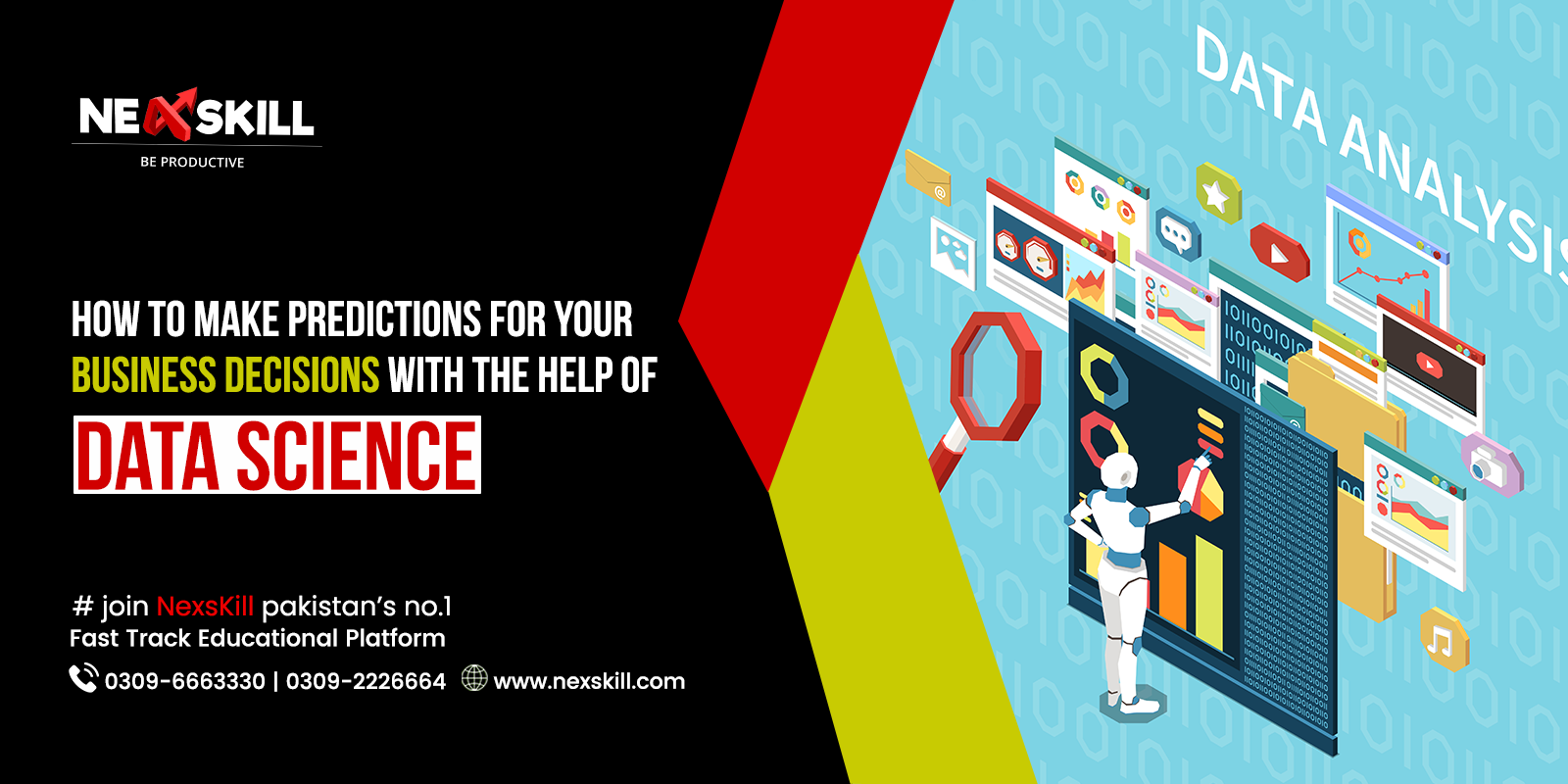
Understanding Data Science
Before delving into the process of making predictions, it is essential to understand the fundamentals of data science. So it encompasses a range of techniques and concepts, including data collection and preprocessing, exploratory data analysis, model selection and training, and prediction and evaluation.

The Benefits of Predictive Analytics for Business Decisions
Predictive analytics, derived from it, offer several advantages when it comes to making business decisions. Firstly, it enhances decision-making accuracy by providing valuable insights derived from large volumes of data. Secondly, predictive analytics helps identify patterns and trends, enabling businesses to anticipate future outcomes and plan accordingly. Lastly, it reduces risk and uncertainty, allowing businesses to make more informed and calculated decisions.
Steps for Making Predictions using Data Science
Making predictions using it involves a systematic approach. The following steps outline how to effectively utilize it for business decision-making:
Define the business problem or question:
Clearly identify the specific problem or question that requires a predictive solution.
Identify the relevant data:
Determine what data is needed to address the problem and ensure its quality and availability.
Preprocess and clean the data:
Cleanse the data to remove errors, handle missing values, and ensure data uniformity.
Explore and analyze the data:
Perform exploratory data analysis to gain insights and identify patterns or relationships between variables.
Select and train the prediction model:
Choose an appropriate prediction model based on the problem at hand and train it using the prepared data.
Make predictions and evaluate the model’s performance:
Utilize the trained model to make predictions and measure its accuracy and performance.
Application of Data Science in Business Decision Making at Nexskill IT Training Institute
Nexskill IT Training Institute through its Course makes you understand the value of data science in making informed business decisions. Leveraging predictive analytics, so they will show you successfully implemented data-driven strategies. Real-life examples and case studies will be shared with you, so showcasing how Nexskill IT Training Institute has effectively made its students utilize data science to improve decision-making processes.
Challenges and Limitations of Data Science Predictions
While it brings immense value, it is not without its challenges and limitations. So data quality and reliability issues can hinder accurate predictions. Additionally, ethical considerations and privacy concerns need to be addressed when handling sensitive data.
Best Practices for Implementing Data Science in Business Decision Making
To effectively implement data science for business decision-making, it is important to follow best practices. So building a data-driven culture, leveraging the right tools and technologies, and continuously monitoring and evaluating the predictions are essential steps to ensure successful outcomes.
Conclusion
Data science has become an indispensable tool for making predictions and driving informed business decisions. Nexskill IT Training Institute recognizes the importance of data science in improving decision-making processes. By embracing predictive analytics, so Nexskill IT Training Institute can empower you to make business decisions with accurate insights, leading to enhanced operational efficiency and competitive advantage.

